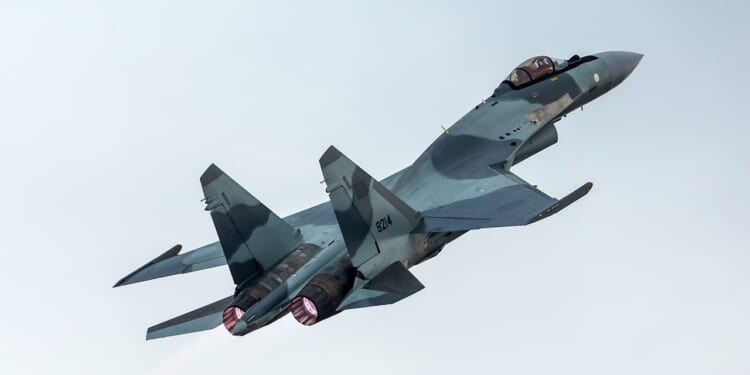With Algeria’s recent purchase of Russian Su-35 fighter jets, it seems almost certain that Morocco will buy American F-35s.
After months as a relatively low priority for Morocco, a deal for Rabat to acquire the Lockheed Martin F-35 Lightning II may be edging closer. Africa Intelligence first reported that negotiations for up to 32 of the fifth-generation stealth fighters are now ongoing. “Unofficial estimates” suggest that the deal would be worth nearly $17 billion, including training, spare parts, and ongoing support for the Lightning II.
A prior sticking point in US-Morocco negotiations over the F-35 may have been in maintaining Israel’s “Qualitative Military Edge” in the Middle East. However, Rabat had formalized relations with Israel during President Donald Trump’s first term, making it the sixth Arab League nation to do so. In November 2024, Rabat also reasserted ties with the Jewish state for the first time since the Gaza war began.
Earlier this year, Israel reportedly gave a green light to the potential US transfer of F-35s to Morocco.
Morocco and Algeria Are Locked in an Aerial Arms Race
Morocco first began talks to buy the F-35 in 2020 and moved forward a year later following high-level meetings between Moroccan Defense Minister Abdellatif Loudiyi and Israeli Defense Minister Benny Gantz. These efforts slowed in 2022, but picked up steam again last year as the news circulated that regional rival Algeria was moving towards a deal with Russia for the Sukhoi Su-57 (NATO reporting name “Felon”).
Morocco and Algeria are neighboring North African nations with a long history of enmity and mistrust, rooted in post-colonial territorial claims but spanning a range of other issues as well. Each side has accused the other of escalating tensions.
Morocco has sought to acquire the F-35 to maintain parity with the Algerian Air Force, as both sides have sought to acquire more advanced military hardware.
Algiers received its first Sukhoi Su-35 (NATO reporting name “Flanker-E/M”) this past spring. Although the total order hasn’t been disclosed, analysts believe that Algeria is on track to receive between as many as two dozen of the “4++ generation” fighters.
The Su-35, initially developed as an export model of the Su-27, has been described as a competent adversary to current US aircraft, including the F-15 Eagle, the F/A-18 Super Hornet, and potentially even the F-35 Lightning II.
This serves to highlight that even without the fifth-generation fighters, the two nations are already very much engaged in a military aviation arms race.
Morocco Already Has a Potent Air Force
The Moroccan Air Force currently operates a fleet of around two dozen F-16 Fighting Falcons, which are being upgraded from the Block 52+ model to the F-16V configuration. Additionally, it has ordered an additional 24 F-16C/D Block 72 Vipers. Those aircraft are powered by Pratt & Whitney F100-229 engines and equipped with APG-83 radars, AN/AAQ-33 Sniper pods, AN/ALQ-213 electronic warfare management systems, and AN/ALQ-211 defensive suites.
Rabat has also leveraged its ties with Israel to strengthen its aerial capabilities. Israel recently transferred to Morocco two Gulfstream G550 aircraft, each equipped with the Israeli Elta reconnaissance suite, for use as border-reconnaissance aircraft.
Morocco’s acquisition of the F-35 could also help bolster ties with the United States and Israel while maintaining a balance of power in North Africa. Even as Rostec, the maker of the Sukhoi Su-57, touts its speed and maneuverability, the F-35 offers advanced networking capabilities that would ensure Morocco also maintains a qualitative edge in the region.
About the Author: Peter Suciu
Peter Suciu has contributed over 3,200 published pieces to more than four dozen magazines and websites over a 30-year career in journalism. He regularly writes about military hardware, firearms history, cybersecurity, politics, and international affairs. Peter is also a contributing writer for Forbes and Clearance Jobs. He is based in Michigan. You can follow him on Twitter: @PeterSuciu. You can email the author: [email protected].
Image: Shutterstock / Fasttailwind.


















